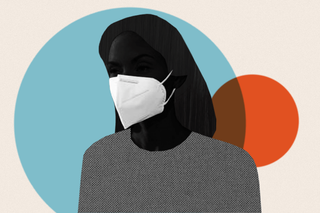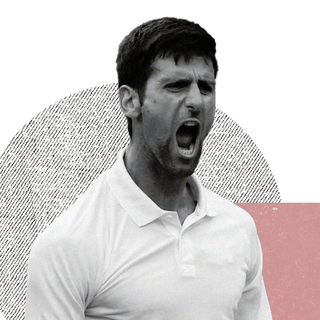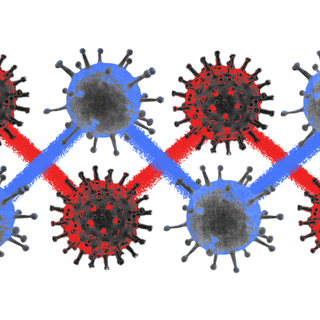
The Right Mask to Wear Amid Omicron Spread, According to Experts
Data around masks begs the question: Why are there no affordable high-quality surgical masks available, even two years into the pandemic?

In the battle of face masks, there are better performers, masks that offer more protection against a variant. When it comes to Omicron, emerging evidence stands in favor of N95, KN95, or three-ply surgical masks — as opposed to cloth masks only.
The science of why medically-graded masks are considered the gold standard for protection is fairly simple. “An N95 mask is a type of respirator. It offers more protection than a medical mask does because it filters out both large and small particles when the wearer inhales,” Mayo Clinic noted, explaining its benefits in responding to Covid19, an airborne infection.Researchers at Duke University conducted a study last year to find N95 masks were the most effective in blocking respiratory droplets — the most effective meaning they blocked it by 99%. Surgical masks followed a close second.
Other medically-graded masks like KN95 and KF94 can filter up to 95% of particles in the air. These respirators are made out of material with an electrostatic charge, which “actually pulls these particles in as they’re floating around and prevents you from inhaling those particles,” Dr. Abraar Karan, an infectious disease physician at Stanford University, told NPR.
Some studies last year argued N95 or similar masks may not be as effective due to their fit — that they may be loose from the side. In that case, multi-layered well-fitted cloth masks could offer more robust protection. But “cloth masks are not going to cut it with Omicron,” says Linsey Marr, a researcher at Virginia Tech, told NPR.
Here’s why: we know Omicron is more quick and efficient at spreading among the community. It is extremely transmissible; it has been a month since the first case was detected globally, and already the global case count, including India’s, has increased multifold. Experts argue it is transmissible even throughthick fabric face masks. This is because cloth masks can filter large droplets, but don’t do much to prevent inhaling particles. N95s, on the other hand, can filter both.
“There is emerging evidence that a surgical mask or a hospital or a medical-grade mask does a better job of preventing respiratory droplets carrying the virus to other people around you,” said Dr. Adi Shah with the Mayo Clinic. While people may opt for a cloth mask because of convenient fit, the idea is simple: a mask is not meant to protect the person wearing the mask, but other people.
Related on The Swaddle:
There’s a Right Way To Double Mask Against Covid19, Research Shows
Here’s what we know about Covid19 spread with and without masks (based on data from Spring 2021). If both (the person infected and not infected) are not wearing a mask, it takes 15 means for the infection to spread. If both are wearing a cloth mask, it takes 27 minutes. Instead, if both are wearing N95 masks, then the virus will take 25 hours to transmit.
“The vaccination is one part, but the other part is doing everything we can to reduce the amount we inhale,” Dr. Richard Corsi, an internationally recognized expert on indoor air quality, said. “That means wearing higher-quality masks than people have been asked to wear to this point.”
There’s a way to bypass the fitting issue that may come with N95s. Dr. Corsi calls this the “condensation test.” “It can be a cold butter knife or reading glasses that you put in the refrigerator and you just kind of move it around the edges of your mask when you put it on to see if you’re seeing any condensation.”
Arguably, higher-quality masks are a lot easier to purchase now. But there has also been a rise in counterfeit N95s, not only compromising people’s health but exploiting others. According to a 2020 investigation by The Wire, poor-quality masks were being advertised as robust protections, but “filtered only some 60-80% of 0.3-micron particles, putting healthcare workers at risk of infection.” Ideally, Indian manufacturers must comply with the requisite quality standards for masks, such as IS:9473, developed by the Bureau of Indian Standards (BIS).
“For N95 masks, there are currently no external labs, outside manufacturers’ facilities, to test for quality. It’s a big problem,” Anil Jauhri, an expert in quality certification systems, told The Wire Science.
Moreover, even the credible and certified ones are priced at a high rate. The obstacle remains one of credibility, accessibility, and affordability. Data around surgical masks or medically-graded masks’ efficacy has been around for long. It begs the question: Why are there no affordable and accessible masks widely available, even two years into the pandemic?
“With Omicron and how transmissible it is, I feel that we should all be moving to wearing a higher-quality, better mask,” Dr. Sabrina Assoumou, an infectious disease physician at Boston Medical Center, said.
Saumya Kalia is an Associate Editor at The Swaddle. Her journalism and writing explore issues of social justice, digital sub-cultures, media ecosystem, literature, and memory as they cut across socio-cultural periods. You can reach her at @Saumya_Kalia.
Related


Djokovic’s Vaccine Row Shows Public Health Mandates Apply to Everyone — Even Great Athletes
